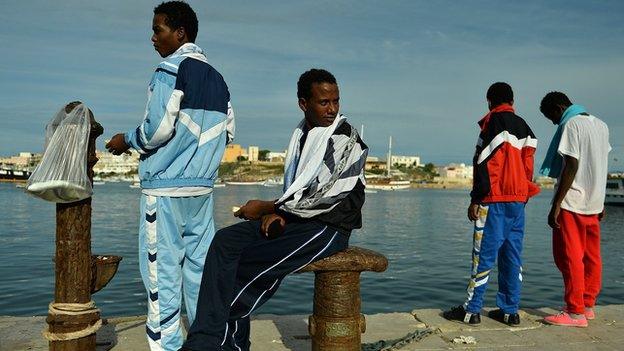Migrants who risk everything to reach Europe
- Published
A growing number of migrants start their journey in Alexandria, Egypt
Of the 23 members of the Bakr family who set sail for Europe on a crowded traffickers' boat in early September, only one is known to have arrived. The body of 14-month-old Malak Raafat Bakr was found off the coast of Italy. The infant girl, whose name meant Angel, was buried in Italian soil.
The relatives who departed with her are believed to be among about 500 people who drowned when traffickers rammed their boat.
Survivors say the migrants had refused to transfer to a smaller ship, fearing it was less sea-worthy. Traffickers ended the argument by sinking their vessel.
For the Bakr family - who are Palestinians - this was the second catastrophe in recent years. Hamas drove them from Gaza in 2007 and seized their business interests. They settled in Egypt but faced many problems so - for the first time - some turned to the traffickers.
"I was completely against it but they kept saying there was no future here, or back home in Gaza," said Atef Bakr, a family elder who stayed behind.
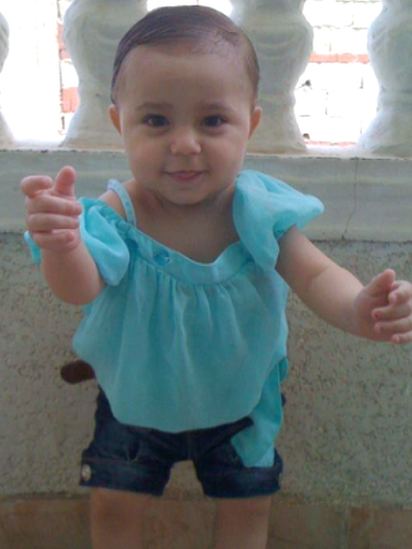
The body of Malak Raafat Bakr was found off the coast of Italy
"They had this dream to get to Europe and to have a decent life for themselves and their children."
Mr Bakr, a former colonel in the Palestinian security forces, has the slow speech and reddened eyes of a man crushed by grief. These days he spends his time searching for updates about the disaster and mourning almost two dozen relatives, including his brother, his son and his grandson.
His mother, Amina, sat alongside in a white headscarf, recalling better days in Gaza.
"We used to eat together, drink together, do everything together. We hope to God to be reunited one day. We hope to hear that they are all right," she said, before giving way to tears.
In a bitter irony, most of the dead were strong swimmers as the family were fishermen.
"They used to swim in the sea in all seasons," said Mr Bakr.
"They could deal with rough seas and cold water. They were still young. How could they drown?"
The Bakrs set sail from Damietta in northern Egypt where people smuggling is a growth industry. There are said to be about 20 departure points along the coast.
Atef Bakr: 'They swam very well, so how could they drown?'
"Last year trafficking wasn't organised but now the gangs are getting connected with each other and the business is getting bigger," said Muhammed Al Kashef, a researcher for the Egyptian Initiative for Personal Rights (EIPR).
"The traffickers now have more money and more power," he said. "By next year it will be hard to tackle them."
Mr Al Kashef, who advocates on behalf of migrants and monitors traffickers, says Palestinians, Egyptians, Libyans and Syrians are now involved in the trade.
The key traffickers and brokers are shadowy figures known only by nicknames like Abu Hamada (also called the Doctor and the Captain), and the General.
Migrants pay at least $2,000 (£1,200) and sometimes up to $4,000 per person, depending on the condition of the boat.
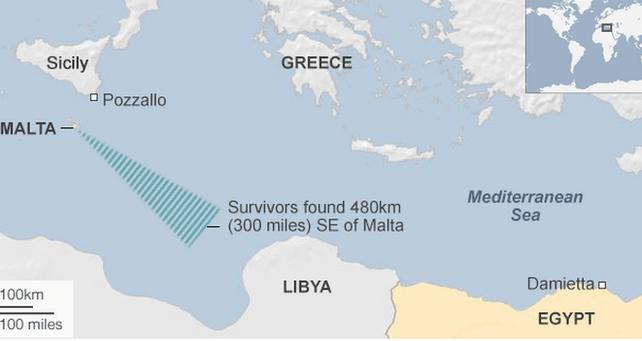
The traffickers operate from public places - including harbours alongside tourist beaches - when the coast is clear. Mr Al Kashef says they work between dawn and 5pm to avoid coastguard patrols at night.
When migrants arrive at the departure point they are put on fishing boats that ferry them out to larger vessels in international waters.
They spend two to three days there waiting for the boat to be filled with hundreds of migrants.
When the ship is packed they begin the voyage to Italy.
They are transferred en-route to another vessel that brings them to Italian territorial waters. The traffickers then phone an SOS to the coastguard and dump the migrants in the sea.
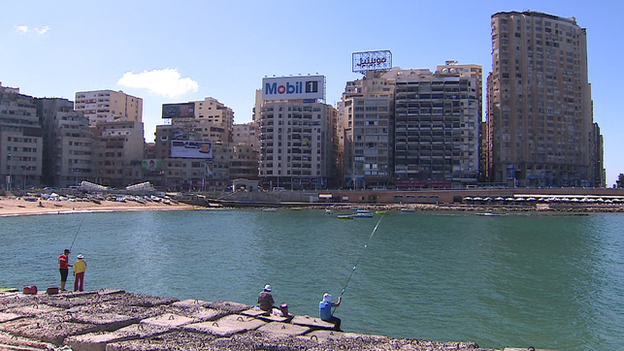
The beachfront in Alexandria - one of the sites used by traffickers
More than 3,000 have drowned in the Mediterranean this year, according to the International Organisation for Migration.
But the European Border Agency, Frontex, says a record number - 182,156 - have made it to Europe by sea. That is three times the total for 2013.
The dramatic increase in arrivals has prompted European nations to plan their biggest ever exercise to detect migrants.
Operation Triton, which will involve more than 20 European countries, is due to begin on 1 November.
But the focus will be on border control, not search and rescue. Aid agencies fear that more migrants will now die at sea.
'Panic and exhaustion'
Abu Baraa, a father of five, knows the perils of the voyage to Europe only too well. The Syrian refugee, who asked us not to use his full name, has already tried the journey 10 times. In April he was stranded at sea for a week with his wife and children.
"There were 160 Syrians on the boat and 64 Egyptians," he said.
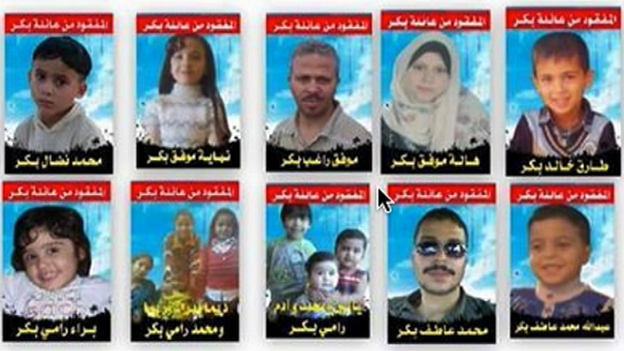
Family snapshots of lost members of the Bakr family
"On the third day they told us there was no more water, so we started drinking sea water. It was hot during the day and cold at night. My children became terrified of the sea. Words can't describe the panic and exhaustion and hunger. Those seven days were like seven years."
They wound up back in Egypt after the traffickers had a row between themselves over money.
"Another boat was chasing us and trying to drown us," Abu Baraa said. "The captain on our boat was very courageous and sailed back to the shore very quickly."
His wife and children finally made it to Europe in July but he couldn't afford to go with them. He proudly shows me a photograph of his four-year-old daughter Farah, clutching yellow balloons, on her first day at school in Germany.
"I can't say I'm not afraid of the crossing but if I get the money, I'm going to try again," he said.
"They are in one place and I am in another. I am like a body without a soul."
Single conviction
If Abu Baraa makes another attempt, drowning is not the only risk he will face.
He could be detained by Egyptian police as he tries to board the boat. More than 4,300 migrants have been arrested so far this year trying to leave the country, according to the Egyptian Initiative for Personal rights.
This includes eight members of the Bakr family - four of them children - who were due to join their relatives on the ill-fated boat from Damietta. They spent six weeks in custody before being released.
Campaigners here say the police are more focused on targeting migrants than those who prey on them.
The authorities deny any collusion with bosses of the lucrative people smuggling trade. They admit that only one trafficker has been sentenced to jail in the past five years but say that is because the law is not tough enough.
- Published20 September 2014
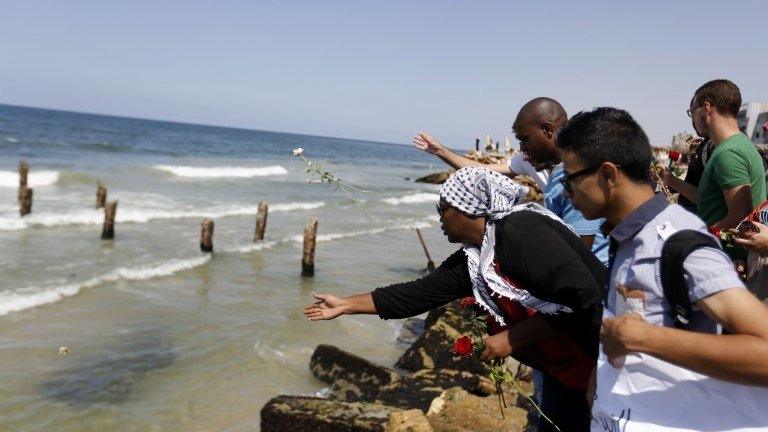
- Published15 September 2014
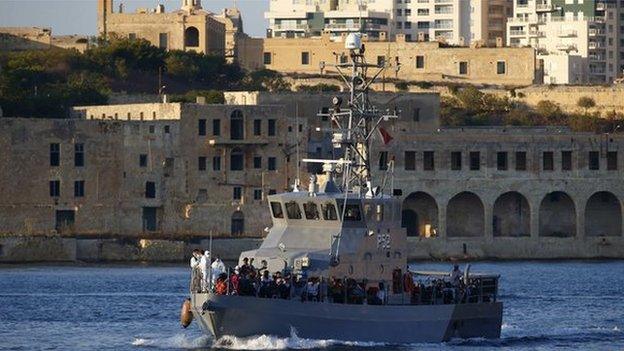
- Published15 September 2014
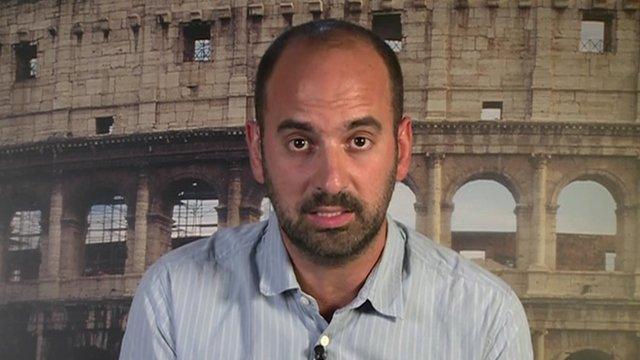
- Published15 September 2014
